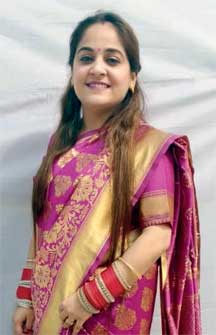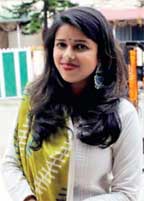Urvi Gupta
In the world of academic disciplines, there is no subject with such an unassuming name as home science. I say that because it gives away nothing of its incredibly dynamic nature and scope, encompassing an entire spectrum of careers from food and nutrition to mass communication. That being said, this multifaceted domain provides a fascinating study of its evolution from a secondary school subject intended for homemakers to one spanning several colleges and fields. Salient policy documents such as the National Policy of Education, 1986 and the Kothari Commission report, 1966 have worked towards cementing the status of home science in the Indian secondary and higher education system. It started as domestic sciences; the princely state of Baroda being one of the first to introduce home science in secondary school for a target group of future housewives for aristocratic households. The subject, however, has long since shed its patriarchal garb and has come to be a cornerstone in bettering public and private aspects of daily life for national development. Home science as a discipline has come a long way and the discourse surrounding this subject has ensured that it is expanding to fit the needs of our ever-changing society. It is only fair that our regard for the subject progresses in the same manner.
 Tanveen (Sarvodaya Kanya Vidyalaya, 2010) shares that this path for her was supposed to lead to a career in food and nutrition, which was the extent of the scope she saw. Even this came into being after an initial dream of aeronautical engineering. Without a promise of financial security and access to relevant guidance in those years, it had to be home science. The general outlook towards the subject also reassured her of an expertise in being able to cook and provide for her family. That seemingly insignificant choice ultimately led to a graduation and masters in development communication, one of the five major disciplines in the university home science curriculum. She now has a fulfilling career in the social sector and wants to go on to get a PhD in the field of family planning. She further shares how her classmates have professional careers in UNICEF and UNESCO. Tanveen (Sarvodaya Kanya Vidyalaya, 2010) shares that this path for her was supposed to lead to a career in food and nutrition, which was the extent of the scope she saw. Even this came into being after an initial dream of aeronautical engineering. Without a promise of financial security and access to relevant guidance in those years, it had to be home science. The general outlook towards the subject also reassured her of an expertise in being able to cook and provide for her family. That seemingly insignificant choice ultimately led to a graduation and masters in development communication, one of the five major disciplines in the university home science curriculum. She now has a fulfilling career in the social sector and wants to go on to get a PhD in the field of family planning. She further shares how her classmates have professional careers in UNICEF and UNESCO. |
A Teachers’ Manual for Home Science Teaching by SCERT, Delhi establishes home science as being centered on managing one’s resources efficiently. Unfortunately, the scope of this definition has been limited to affairs of the household in the mind of an average person. It is easy to look around for someone to blame for this narrow framing, but the answer is not simple. A cursory analysis of the colonial origins of the subject and its socio-cultural implications sheds light on our detrimental view of home science as a sort of training for running a home for prospective housewives. This discipline seems to be a reflection of the status of its majority female students, metamorphosing in step with the various waves of feminism and the remodelling of feminism and womanhood as we know it. However, the identity of this expansive subject being reduced to rudimentary training cannot be farther from the truth. Through a series of conversations with current and past students about their time in home science classes and the impact it has had on their life, I have attempted to dissect the nuances of the home science curriculum in this article.
It seems as though students have taken, and still take to home science as a supplementary course of action. Therefore it is not surprising, given its subordinate status amongst secondary schooling subjects and its informal classification as a vocational discipline. However, as they go through the motions of the curriculum, a lot of students end up finding meaning and purpose, staying on for higher studies and even building their careers in one of the many sub-disciplines offered.
In today’s times, the reasons for inadvertently ending up in a home science classroom have seemingly changed forms, and become a bit more practical as opposed to stemming from a lack of guidance. The consequent path however is similar to the forerunners: a reluctant acceptance of this new subject slowly turns to a newfound appreciation and understanding of what it means to be a student of home science.
 Meenakshi (IHE, DU 2012-15) was introduced to the world of home science when she was choosing a subject for her undergraduate studies. With no background in her schooling, something clicked in the enterprising university curriculum. She has since gone on to pursue her masters in home science, majoring in education. Meenakshi is now part of a leading organization in the social sector, the roots for which were sown during her time as a student in Institute of Home Economics, New Delhi. She feels that home science is an umbrella under which there are a plethora of disciplines, and there needs to be work done in how the general public regards students such as herself. With enough open-minded conversation around the true nature of this discipline, the subject should be able to speak for itself, instead of one having to work against the disdainful grain of thought we have become so used to. Meenakshi (IHE, DU 2012-15) was introduced to the world of home science when she was choosing a subject for her undergraduate studies. With no background in her schooling, something clicked in the enterprising university curriculum. She has since gone on to pursue her masters in home science, majoring in education. Meenakshi is now part of a leading organization in the social sector, the roots for which were sown during her time as a student in Institute of Home Economics, New Delhi. She feels that home science is an umbrella under which there are a plethora of disciplines, and there needs to be work done in how the general public regards students such as herself. With enough open-minded conversation around the true nature of this discipline, the subject should be able to speak for itself, instead of one having to work against the disdainful grain of thought we have become so used to. |
It’s worth mentioning that not all students end up finding their path among the many sub-streams of home science, but then again, that much is true of any discipline from the sciences to language. In the case of home science, however, it is very difficult to overlook the abundance of life skills that it provides you with. It is this foundational nature of the subject that argues for a student’s first introduction to it to be much before the final years of schooling. Several students like Samriddhi, who have been a part of professional discourse surrounding home science in varying capacities, are of the opinion that it needs to be introduced to the learners right from class 5 alongside other subjects. This exposure aims to orient students towards the scope of the subject, preventing it from being put on the back-burner of the education system. The larger idea here seems to be to broaden the scope of the education system. Instead of creating dichotomies of vocation vs academic or scientific vs social, home science is a subject pushing the boundaries of pre-existing systems, perhaps explaining the resistance against it, both manufactured and involuntary.
The fundamentals of home science have also gone through a major overhaul, the most recent one being an opening for humanities and commerce students into Bachelors of Home Science courses, previously limited to science students. As shared by current students, there seems to be a deliberate effort to make up for lost time, with both the curriculum and the teachers now making conscious efforts to situate the subject in the learner’s reality and provide exposure for the future. From 2013 onwards, students in most undergrad programs in home science are presented with the choice of opting for a major from any available programme under the Faculty of Home Science, as well as one from any other department to ensure that they have the opportunity to understand other disciplines. This dynamism is woven into the very fabric of the curriculum, proving time and again that this subject deserves way more credit than we care to give it.
 Samriddhi (APJ, 2019-20) talks about how she was asked by her mother to choose home science over math to ensure an easy sailing with her commerce studies in senior secondary. Having told her mother she’d have to do any cooking that ensues, she talks about the eventual reshaping of her own ideas of this discipline and of those around her, such that it has now led her to pursue her undergrad in home science over commerce. The path less taken however seldom comes without its stings; having been asked “Why home science? Do you want to become a housewife?” by one of her close friends, she talks strongly about how misinformed the general population is when it comes to this subject. Shorya Goel (Manav Rachna International, 2020-21) chose home science as a fifth subject, given that it counts as one when later applying to universities across India. Having landed here with the general attitude of having to learn to cook, he believes he stands corrected even just one year into online secondary education. Samriddhi (APJ, 2019-20) talks about how she was asked by her mother to choose home science over math to ensure an easy sailing with her commerce studies in senior secondary. Having told her mother she’d have to do any cooking that ensues, she talks about the eventual reshaping of her own ideas of this discipline and of those around her, such that it has now led her to pursue her undergrad in home science over commerce. The path less taken however seldom comes without its stings; having been asked “Why home science? Do you want to become a housewife?” by one of her close friends, she talks strongly about how misinformed the general population is when it comes to this subject. Shorya Goel (Manav Rachna International, 2020-21) chose home science as a fifth subject, given that it counts as one when later applying to universities across India. Having landed here with the general attitude of having to learn to cook, he believes he stands corrected even just one year into online secondary education. |
I wish to leave the readers with some food for thought. When asked about their most memorable moments from home science classes across school and college, I got the following responses from the participants:
• Tanveen shares how she still distinctly remembers ten years later that she worked hard on her project file, innovating with the use of cloth and neon sheets, as well as fond memories of cooking matar paneer all by herself as part of her final assessment.
• Meenakshi tells me about how interesting it was for her to study the science behind how food is prepared as part of her undergrad, all while she was majoring in development communication.
• Shorya laments about his first year of home science education having taken place online and missing out on interesting practicals and experiments, and never even having seen their lab.
These responses are part of a rich repertoire of experiences that I had the opportunity to compile over the course of several conversations. However, are you seeing a pattern? To me, all of these seem to be about cooking or learning about textiles, or even just compiling an evaluation file. On introspecting, I realize that these are the very points that are raised as criticisms of the structure and implementation of the current curriculum.
My question to you, dear readers, is simple. Why shouldn’t those be memorable and valuable moments? What does our dismissal of these demonstrate in terms of our attitude towards this subject? It stands well within reason that a curriculum with the range that home science has exhibited includes topics as fundamental as working with food or fabric, two out of three of our basic human needs. Besides, everyone from Gandhi to Piaget have time and time again postulated the importance of hands-on learning. Why then is it that when it comes to home science we are so quick to judge?
Whether it has to do with the subject being discredited as a training ground for home-making and our apparent disrespect for that arena of work, or a general lack of understanding of the scope and value of the curriculum, one thing is abundantly clear; the revolution perhaps needs to be more in thought rather than in theory.
The author is a final year student at Lady Shri Ram College, Delhi University seeking all things sustainable and exploratory. She is also a dancer and teacher, and can be reached at urvigupta412@gmail.com.
